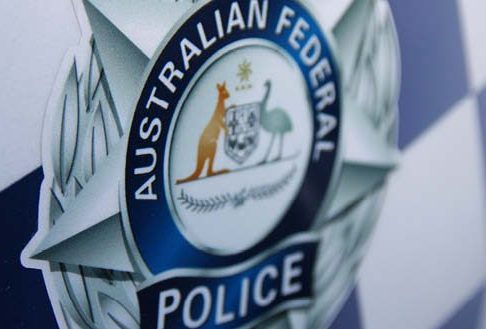
By Callum Godde in Melbourne
A CHINESE-Australian crime syndicate has been busted after allegedly using a money transfer chain as a front to launder almost $229 million.
The Australian Federal Police has accused Changjiang Currency Exchange, which has 12 shop fronts across the nation, of being secretly run by an underworld money laundering syndicate.
The Long River syndicate is accused of laundering almost $229 million in illegal funds through the business in the past three years.
More than 300 officers on Wednesday conducted 20 raids across every mainland state and seized $50 million in luxury property and vehicles as part of the AFP-led Operation Avarus-Nightwolf.
Four Chinese nationals and three Australians were arrested across Melbourne’s eastern suburbs and charged over their alleged involvement in the syndicate.
They are a Balwyn man, 37, a Glen Iris man, 40, a Vermont woman, 33, a man and woman from Kew, both 35, a Balwyn North man, 37, and a Balwyn woman, 38.
The alleged boss of the syndicate was among those arrested and more people could be taken into custody, AFP Assistant Commissioner Stephen Dametto told reporters on Thursday.
“This is probably the most sophisticated and most significant money laundering organisation that we have disrupted,” he said.
“In terms of the way they did their business, in terms of the money they moved.”
The AFP has seized luxury homes and vehicles as part of a money laundering probe.
Former Howard government minister Gary Hardgrave had appeared in a video for the currency exchange business but is not under suspicion.
“He hasn’t formed any part of our investigation,” Mr Dametto said.
“They were putting a legitimate facade forward to the public and that wasn’t just about having shop fronts around Australia.”
The probe was in part triggered by AFP investigators noticing that the exchange chain opened and updated new and existing shopfronts in the heart of Sydney during the city’s COVID-19 lockdowns.
Assistant Commissioner Dametto said it sent alarm bells ringing among money laundering investigators.
“It was just a gut feeling – it didn’t feel right,” he said.
“Many international students and tourists had returned home, and there was no apparent business case for Changjiang Currency Exchange to expand.”
The AFP identified alleged links between the exchange chain, one of the largest independently owned remitters in the country, and known money laundering organisations.
It is alleged the exchange chain has transferred more than $10 billion in the past three financial years.
Most of the funds were from law-abiding customers but the AFP alleges the company simultaneously facilitated a system for organised criminals to secretly transfer unlawfully obtained money in and out of Australia.
In all, the business laundered $228,883,561 between 2020 and 2023, the AFP alleges.
It is alleged some of the laundered money was proceeds of crime, including from cyber-enabled scams, the trafficking of illicit goods and violent crimes.
The syndicate would coach its criminal customers on how to create fake business paperwork, such as false invoices and bank statements, police allege.
This allegedly allowed criminal customers and Changjiang Currency Exchange to demonstrate that unlawfully gained money was from lawful sources if transfers came to authorities’ attention.
The exchange chain pocketed higher fees for customers with unlawful funds and avoided tax liabilities on legitimate transactions and other income, the AFP alleges.
The mixing of legal and illicit funds allowed the company to transfer up to $100 million a day for customers in Australia and overseas, with the volume of transfers masking the alleged laundering of tainted funds.
Syndicate members allegedly amassed a significant amount of illegal wealth from their criminal activity.
“We allege they lived the high life by eating at Australia’s most extravagant restaurants, drinking wine and sake valued in the tens of thousands of dollars, travelling on private jets, driving vehicles purchased for $400,000 and living in expensive homes, with one valued at more than $10 million,” Assistant Commissioner Dametto said.
The syndicate also spent $200,000 each on fake passports, enabling members to flee if officers ever came knocking, police allege.
The AFP and its partners spent 14 months planning Long River’s takedown.
Assistant Commissioner Dametto described it as a sophisticated and complex money laundering group, which had entrenched itself into the fabric of the financial services industry.
Who can be trusted?
In a world of spin and confusion, there’s never been a more important time to support independent journalism in Canberra.
If you trust our work online and want to enforce the power of independent voices, I invite you to make a small contribution.
Every dollar of support is invested back into our journalism to help keep citynews.com.au strong and free.
Thank you,
Ian Meikle, editor





Leave a Reply